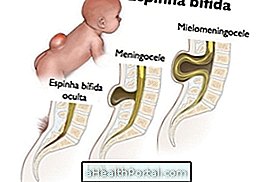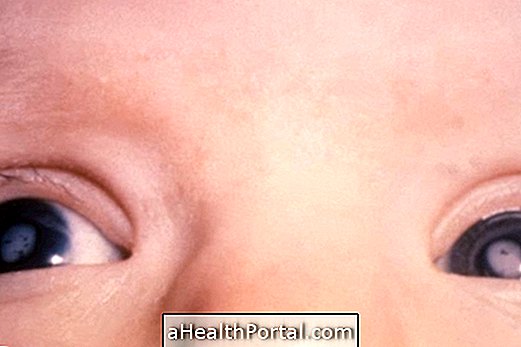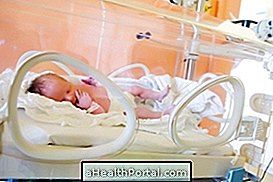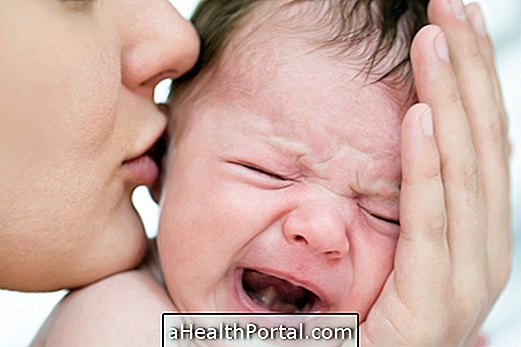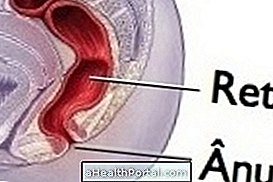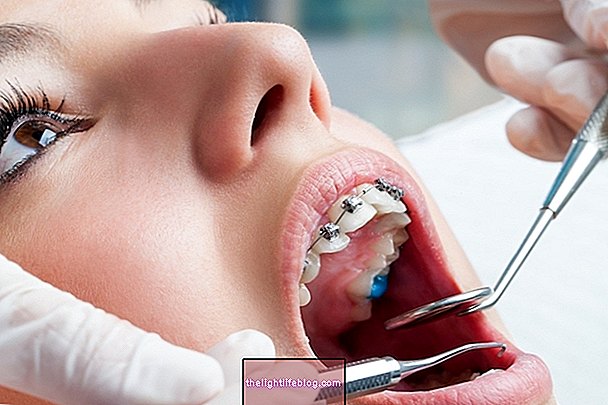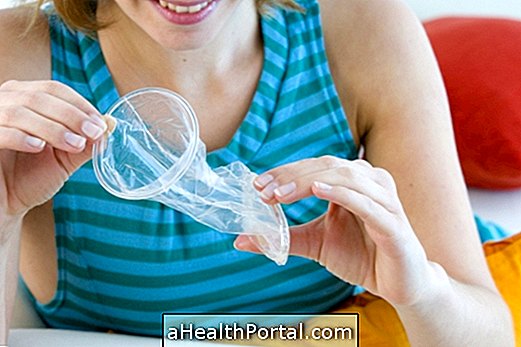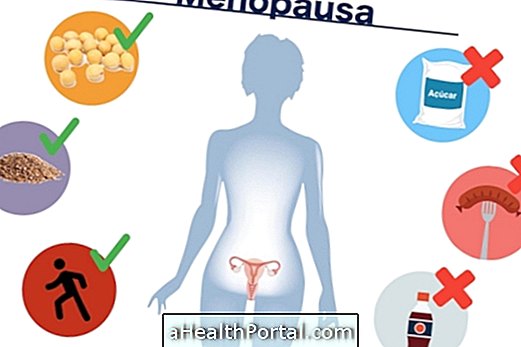The cleft palate is when the baby is born with the roof of the mouth open and missing a bit of lip, which prevents him from closing his mouth completely and makes it difficult to feed.
These fissures can bring some complications to the baby, especially in food, which can lead to cases of malnutrition, anemia, aspiration pneumonia and frequent infections, so every baby born should have surgery to rebuild the tissues of the mouth, in the first year of life.
The surgery is able to close the lip and the roof of the mouth, and the baby recovers completely within a few weeks after the operation, leaving no complications in tooth growth and feeding.
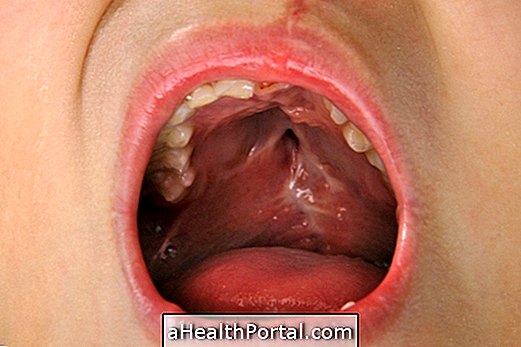
What causes the cleft lip and the cleft palate
Both the cleft lip and the cleft palate are caused by poor fetal formation that occurs when the two sides of the face unite, around 16 weeks of gestation.
Its causes are not fully understood but it is known that there are higher risks when women who do not adequately perform prenatal care or who:
- She did not take folic acid tablets before attempting to conceive;
- You have diabetes and are not controlling your blood sugar levels;
- She took antibiotic, antifungal, bronchodilator and anticonvulsant medications during pregnancy;
- Consumed illicit drugs or alcohol during pregnancy.
However, a healthy woman and who performed prenatal care properly may also have a baby with this type of fissure on the face, and that is why its causes are not fully known.
When the doctor checks that the baby has a cleft lip and a cleft palate, he or she will be able to investigate if he has Patau's syndrome, because half of the cases of this syndrome present this type of facial alteration. The doctor will also investigate the functioning of the heart because this can also be altered as well as the ear, which has a greater tendency to accumulate secretions, which increases the risk of ear infection.
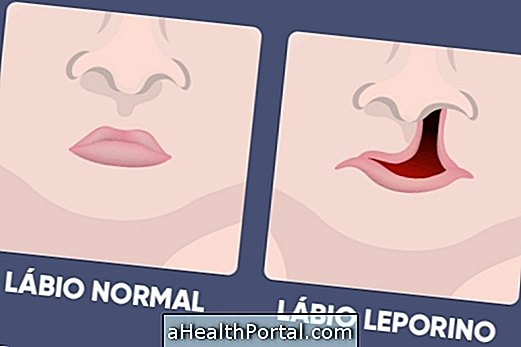
The cleft lip and the cleft palate despite being genetic characteristics are also hereditary and so when one of the parents has one of these fissures, your child is 5 times more likely to have as well.
When it is known that the baby has this malformation
The doctor can diagnose that the baby has the cleft lip and / or cleft palate through morphological ultrasound in the second trimester of pregnancy, from the 14th week, also by 3D ultrasound or at birth.
After birth the child needs to be accompanied by the pediatrician, otolaryngologist and dentist because the cleft palate can compromise the birth of teeth and the cleft lip usually disrupts breastfeeding, although the baby can take the bottle.
Surgery for Cleft Lip and Cleft Palate
The treatment for cleft lip is done through a plastic surgery that can be performed when the baby completes 3 months of life or after this period at any stage of life. In the case of a cleft palate, surgery is only indicated after 1 year of age. Surgery is fast and relatively simple and can achieve great results.
In order for the plastic surgeon to perform the surgery it is necessary that the baby is more than 3 months old and has no anemia, besides being in good health.
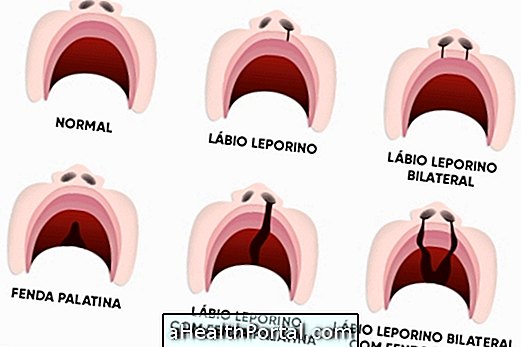
How is breastfeeding?
Breastfeeding is still recommended because it is an important bond between mother and child and although it is difficult to breastfeed because the vacuum does not form and therefore the baby can not suck milk, it is important to offer the breast about 15 minutes in each breast, before giving the bottle.
To facilitate the delivery of milk, the mother should hold the breast by pressing behind the halo so that the milk can come out with a lower suction. The best position for this baby to suckle is upright or slightly tilted, avoiding letting the baby completely lying down on the arm or bed to nurse because this increases the risk of it choking.
If the mother can not put the baby in the breast the mother can take the milk with a manual pump and then give it to the baby in the bottle or the cup because that milk has many more benefits for the baby than the infant formula, because thus he you have less risk of ear infection and difficulty speaking.
The bottle does not need to be special because there is no specific one for this type of health problem, but it is more advisable to opt for the rounded bottle nozzle, which is more like the breast of the mother, because the mouth fitting is better, but another option is to offer the milk in the cup.
Caring for the baby before surgery
Before surgery parents should have some important care like:
- Always cover your baby's nose with a diaper to warm up the air the baby breathes because there is less risk of the colds and flu that are very common in these children;
- Always wipe the baby's mouth with a clean diaper wet with saline, to remove leftover milk and food after it eats. If necessary, swabs can be used to clean the slit in the roof of the mouth;
- Take the baby for a consultation with a dentist before 4 months of age, to evaluate the oral health and when the first teeth should be born;
- Ensure the baby feeds well to avoid having low weight or anemia, which will prevent surgery in the mouth;
- Keep the baby's nose always clean by using a wet cotton swab in saline to remove dirt and secretions at least once a day.
